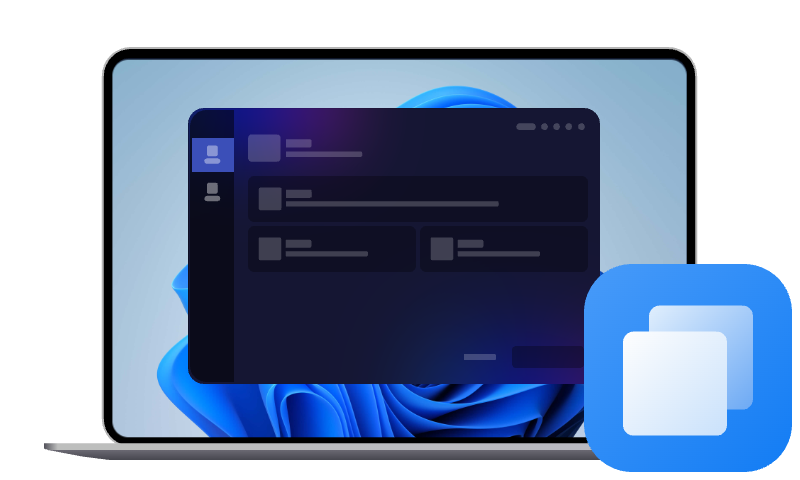How to Fix Bad Sectors in HDD & Replace Bad HDD Easily
Bad sectors on HDD can cause data loss, system instability, and performance issues. Here are solutions to fix bad sectors on HDD and a way to replace your hard drive with bad sectors without losing anything.
Can HDD Bad Sectors be Fixed?
I have a Seagate HDD that keeps creating bad sectors when it reaches 100% usage. When I use it 100% or do a large file copy, it begins to create bad sectors. How can I repair those bad sectors? Can I still use it?
When your hard disk starts to slow down, run erratically, or refuse to open files, the culprit may be bad sectors. Bad sectors are small clusters of storage space on your hard disk drive (HDD) that become inaccessible or unreadable. These tiny sections of the disk become unreadable due to physical damage or logical corruption.
- Physical (hard) bad sectors: Caused by actual damage to the disk surface. This could be due to age, overheating, manufacturing defects, or physical shock.
- Logical (soft) bad sectors: Caused by software issues such as sudden power loss, system crashes, or malware interference.
So the answer depends on the type of bad sector - physical bad sectors cannot be repaired, and logical bad sectors can be repaired. But don't worry! This guide walks through how to fix bad sectors in HDD, and an easy way to replace your hard disk with bad sectors without data loss.
How to Fix Bad Sectors in HDD/SSD
In this chapter, we will cover two solutions for HDD bad sector repair. It is important to note that it is highly recommended that you do not store any valuable data on the bad drive from now on. And it is best to consider replacing the drive to avoid more bad sectors and loss of all data.
The following two fixes only work for logical bad sectors. If your disk has physical bad sectors, which indicate actual damage to the disk, you may replace the drive directly.
Way 1. Use CHKDSK Command
CHKDSK (Check Disk) is a built-in Windows HDD bad sector repair tool that scans your hard drive for file system errors and bad sectors. This is the most common method for hard drive bad sector repair. Here are steps on how to use it for hard disk bad sector repair.
Step 1. Press Win + S, type Command Prompt, and choose Run as administrator from the search result.
Step 2. Type the following command and hit Enter to repair bad sectors on hard disk. If prompted to schedule on next reboot, press Y and restart your PC.
- chkdsk X: /f /r /x
- Notes:✎...
- Replace X: with the actual drive letter of your HDD.
- The parameter /f fixes errors, /r locates bad sectors, and /x dismounts the drive before scanning for repair.
Step 3. Then, Windows will check the disk during boot, fix logical errors, and isolate physical bad sectors.
Way 2. Format Your HDD
If the cause of the HDD bad sectors is related to the format, then formatting the hard drive may be helpful to repair some of the bad sectors. However, if the bad sectors are caused by physical defects, formatting cannot repair them. Follow these steps to fix bad sectors on hard drive by formatting:
- Note: Formatting erases all data. Back up important files or clone everything from HDD to another drive before proceeding.
Step 1. Open This PC, right-click on the affected drive, and select Format.
Step 2. Choose the File System.
Step 3. Uncheck Quick Format for a full sector-by-sector format. And click Start.
A full format checks the entire disk and marks unusable sectors to prevent future writes to them. It can only temporarily eliminate soft bad sectors. If you want to get rid of your disk's bad sectors completely, the best hard drive bad sector repair solution is to replace it with a new disk.
Best Way to Clone a Disk with Bad Sectors for Replacement
Is it possible to copy data from a hard drive with bad sectors? Of course. AOMEI Cloner, a powerful disk cloning tool, can clone hard drive to make a full copy of your disk and skip its bad sectors. It ensures safe, efficient data migration, even from a failing drive.

- It runs intelligent-sector clone (by default) to skip bad and unused sectors to avoid copying corruption, allowing for cloning large disk to smaller disk.
- Its System Clone transfers only the OS and boot-related partitions, and its Disk Clone copies entire drives, including hidden and recovery partitions to another drive.
- It supports HDDs and SSDs from all popular brands. You can clone HDD to M.2, NVMe, and SATA, and it offers SSD alignment to optimize better SSD performance.
How to clone disk with bad sectors using AOMEI Cloner:
Step 1. Download & Install AOMEI Cloner on your PC. Connect the new HDD or SSD to your computer via SATA or USB adapter, or install it with a hard drive bay.
Step 2. Open AOMEI Cloner and choose Clone > Disk Clone.
Step 3. Select the source disk (your current HDD with bad sectors), and choose the target disk (new HDD or SSD).
Step 4. DO NOT enable Sector-By-Sector Clone as it will copy all parts, including these bad sectors. You can enable SSD Alignment if cloning to SSD.
Step 5. Then, click on Start Clone to clone a disk, with no need to fix bad sectors in HDD.
When the cloning is finished, replace the old HDD with the new one, set the new disk as the primary boot device in BIOS, and boot the system to enjoy the new disk in mint condition.
FAQs on Fixing Bad Sectors in HDD/SSD
#1. Does formatting an HDD fix bad sectors?
Yes and no. Formatting can isolate and mark bad sectors so they’re no longer used, which improves performance. However, it doesn’t repair physical damage - only logical issues are addressed.
#2. Is it safe to use HDD with bad sectors?
Using a drive with a few bad sectors might not immediately harm your data. However, as these sectors increase, your risk of losing important files rises dramatically. If you’ve detected bad sectors, back up your data immediately and prepare for drive replacement by using the professional disk cloning software AOMEI Cloner to clone hard drive with bad sectors easily.
#3. Does disk defragmenter fix bad sectors?
No. Defragmenting only rearranges files to optimize space- it doesn't identify or fix bad sectors. In fact, defragmenting a failing disk can worsen the damage. It’s best to avoid defragmentation on drives with known bad sectors.
Conclusion
The CHKDSK utility and full formatting offer basic ways to fix bad sectors in HDD. However, for a long-term solution, especially when physical damage is involved, the safest move is to replace the drive entirely. Tools like AOMEI Cloner make this process painless.
With this software, you can clone and migrate everything from HDD to SSD, skipping bad sectors. Don’t wait until your HDD fails completely; then you may lose all data on it.

